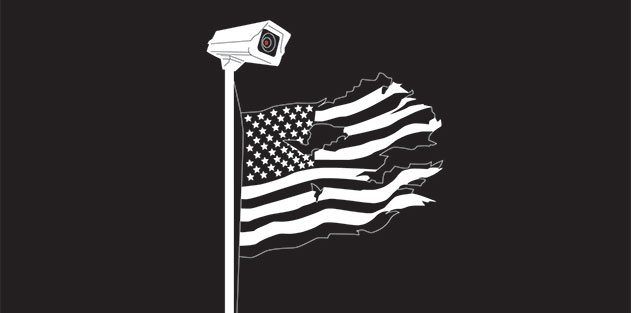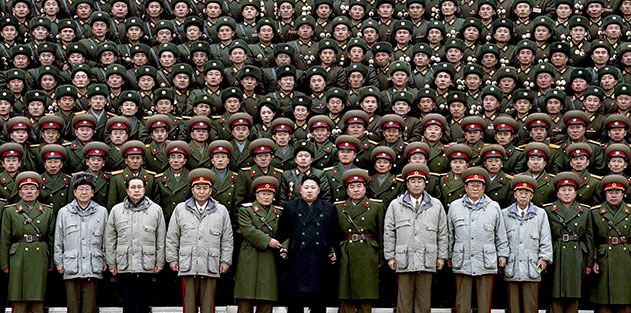The Best Debt in the World by Emma Elliot Freire
Hard to believe, but Britain’s student loan problem is worse than the Yanks’.
In late 2010, tens of thousands of British students took to the streets of London. They protested government plans to cut direct funding of higher education and raise the cap on tuition from £3,290 ($5,500) to £9,000 ($15,000). Some of them occupied government buildings and clashed violently with police. Hundreds were arrested.
Maybe they shouldn’t have gotten so worked up. It’s now becoming clear that most of them won’t repay their loans in full. Some of them will even be getting their education for free.
The UK government’s student loan scheme is more generous than its American counterpart. Any British student who is accepted to a university is automatically entitled to a government loan for the entirety of their tuition. Most universities are charging £9,000 per year. British students can also get loans for their living costs, which range from £4,418 to £7,751 per year. The average student will graduate £44,000 ($74,000) in debt.
The core difference between the British and American systems lies in the terms of repayment. American students typically have to start repaying 6 months after they graduate. Opportunities for loan forgiveness are extremely limited, and loans cannot be discharged via bankruptcy. By contrast, British students don’t have to start repaying until they are earning £21,000 ($36,000) per year. They must then pay 9 percent of their gross income as long as they stay above the threshold. Their outstanding balance is automatically forgiven 30 years after it became eligible for repayment. Also, the loans do not appear on their credit report.
“The thing people worry about with debt is that they won’t be able to pay it back. The way this is structured means that is not a worry ever, and it doesn’t follow you around until your old age,” says Sam Bowman, Research Director at the Adam Smith Institute, a free-market think tank.
Bowman finds it helpful to understand loan repayment as a tax. “You can either think of it as a graduate tax or it’s the best debt in the world,” he says. “It makes sense to think of it as a graduate tax, a specific kind of tax on a specific action that is designed to offset the cost of that action.”
Uncharted waters for repayment
The first students to take on the new, larger type of loans have yet to graduate, so it is hard to estimate what repayment rates are likely to be. However, the Institute for Fiscal Studies (IFS), an independent research center, is already projecting that 73 percent of students will not repay their loans in full. They believe the average amount written off will be around £30,000 ($50,500).
A report released in July by a committee of the British parliament reached similar conclusions. “By providing favourable terms and conditions on student loans, the Government loses around 45p [cents] on every £1 it loans out.” When the new policies were first announced in 2010, the government projected it would only lose 28p per £1 loaned out. The report notes that government loans to students are expected to total £330 billion by 2044. “We are concerned that Government is rapidly approaching a tipping point for the financial viability of the student loans system,” says the report.
By and large, students still think of themselves as having “real debt” for their education. “One valid criticism of the loan system is that students don’t realize how generous it is,” says Nick Hillman, director of the Higher Education Policy Institute. “Students think they’re paying for the entirety of their education when actually they’re not. Taxpayers are covering quite a lot of the cost.”
The IFS report notes that the lowest-earning 10 percent of graduates will only repay £3,879 (in 2014 prices). A survey earlier this year showed that 40 percent of graduates are still looking for a job 6 months after leaving university. If this trend continues, some graduates may never start earning £21,000.
A few savvy individuals are learning to work the system. British financial advisors encourage parents who could contribute to their child’s education to have their kid take out government loans instead. Martin Lewis, who runs the popular website moneysavingexpert.com, writes, “If a parent pays the £27,000 tuition fees upfront, and their child becomes a poet and never earns above £21,000, the whole £27,000 would have been wasted.”
The only people who can expect to repay their loans plus interest in full are the small group who take high-paying jobs soon after graduating and get regular pay increases for the next 30 years. These individuals are thinking hard about whether they need a degree. “The only income group that has gone to university less are the richest. That might be surprising, but what the debt does is it imposes some cost on people for going to university,” says Bowman. “So if they have other options, they take them. Maybe they could skip college and join their parent’s business or their parents can find them jobs.”
This is one immediate impact of the new loan scheme. There will undoubtedly be unintended consequences that may only become evident years or decades from now. For example, Britain may see an increase in the number of stay-at-home parents. Loan repayment is tied to an individual’s income. Spouse’s earnings are irrelevant. Child care is already very expensive. For some families, the extra 9 percent they would lose in loan repayments will be enough to push one parent out of paid employment.
Loans without borders
Loan repayments are collected by Her Majesty’s Revenue and Customs, the British equivalent of the IRS, via withholding from a person’s paycheck. This makes it fairly simple to collect money from anyone working for a British employer. Things become harder when a graduate leaves the country.
“There is no way that the government can collect money from people who go abroad,” says Bowman. “There is a big incentive for them to stay away. Say you’re an English graduate and you go to America for a couple of years to work. If you have this debt waiting for you when you get home, there’s a big reason for you to stay abroad for as long as possible.”
The number of students who would actually permanently leave is probably very small. “It would be a much bigger problem than the student loan book if we were seeing Irish levels of emigration,” says Bowman. However, a determined few will be able to dodge repayment.
And then there’s the question of students who come to Britain from other European Union countries. Since 2006, EU law has required Britain to offer these students the same loan deals for tuition, though not for living costs. It is a tradition in British politics to blame problems that are largely homegrown on the widely-hated EU. As the issues with loan repayment have come to light, stories about EU students borrowing money and then “going to ground” have also been hitting the headlines.
This problem is still fairly small, since EU students have only been receiving loans since 2006. Hillman says that about half of EU students who study in Britain choose not to borrow or repay their loan in full before they leave the country. Many EU students enroll at British universities because they want to work in Britain later. Thus, they have a strong incentive to repay. However, data is now emerging that shows unpaid loans in the low millions. “The issue is less about what has happened to date but what might happen in the future because there aren’t many people yet who are liable to repay, but it’s growing all the time,” says Hillman.
“If a French or Dutch person studies at a British university then goes home and gets a job, we can certainly chase them through the French or Dutch courts because they’ve signed a legal contract and they should repay,” Hillman says. “But the trouble is that it’s an incredibly expensive business. The person may owe £27,000, which is a lot of money, but chasing someone through the courts can easily cost that much.”
One way to address this problem would be an EU-wide agreement. “But there’s no real incentive for other European countries to do this because other European countries don’t use loans in the same way we do,” says Hillman.
Relative improvement
Despite the problems, both Hillman and Bowman say the new system is an improvement over the way British higher education used to be funded. Tony Blair’s government only introduced tuition in 2004. “Before loans and fees came in, British taxpayers paid 100 percent of the cost of going to university. Now they don’t. But they still fund part of the loan cost,” says Hillman.
Bowman says it is important to remember the overall British context. “The alternative is not a kind of free market where you have everybody paying their own way and banks privately making loans to people. The alternative is going back to a situation where the government pays for everything, and that’s a disaster,” he says. “The political climate in the UK is very hostile to any kind of marketization of anything. That’s not going to change for a couple of years, at least until we’re growing rapidly, and we all feel rich and safe again.”
Potential Solution
One interesting idea put forward by David Willetts, a Member of Parliament and former Minister of State for Universities, is to sell government student loans to universities, making them responsible for collecting repayment. This approach would address a problem that afflicts both American and British higher education: Universities collect tuition upfront and then have little incentive to ensure loans are repaid.
Bowman supports the proposal. “Making universities responsible for whether people repay might make them more willing to turn people away if they’re not a great bet in terms of their future earning, and that might counteract some of the qualification inflation. Right now, you need a university degree for any job that isn’t blue collar manual labor.”
He believes Willetts’ idea is politically viable. “Britain has lots of middle-class people who think of themselves as being working-class. They feel like they’re fighting against the man when in reality they are the man. You could say to them that we don’t want people who haven’t gone to university picking up the bill in any way for people who have gone to university.”
The only question is whether universities would go along with it. Right now, they have a very beneficial arrangement.
Much will depend on how loan repayment rates develop in the next few years. Graduates will probably soon grasp that they have the best debt in the world. Maybe taxpayers will start to realize this debt isn’t such a good deal for them.
ABOUT EMMA ELLIOTT FREIRE
Emma Elliott Freire is a freelance writer living in England. She has previously worked at the Mercatus Center, a multinational bank, and the European Parliament.
RELATED ARTICLE: Can You Pay Student Loans With a Credit Card?
EDITORS NOTE: This column with images is republished with permission. The featured image is courtesy of FEE and Shutterstock.










